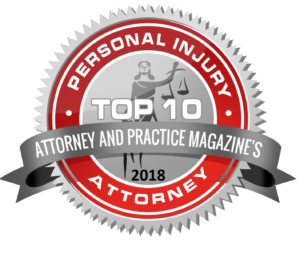When one hears the term “whiplash,” it is common to immediately think of neck and upper back pain. However, the reality of whiplash is far more complex, especially when it comes to the broader spectrum of injuries that can result from this type of trauma. In Virginia, where roadways are constantly busy and accidents are a common occurrence, understanding the full scope of injuries related to whiplash is essential for both victims and their legal representation. This page delves into the nuances of whiplash injuries, emphasizing how they extend beyond the commonly understood neck and upper back issues, affecting various parts of the body and impacting a person’s quality of life in profound ways.

Understanding Whiplash
Whiplash is a term that has been widely used to describe the violent back-and-forth motion of the head that often occurs during a rear-end car collision. This sudden movement can cause the neck to hyperextend and then rapidly flex, leading to strains or sprains of the muscles, ligaments, and tendons in the neck. However, while the neck is most commonly associated with whiplash, the force of the impact often travels down the spine, causing a chain reaction that can result in injuries to other parts of the body.
In many cases, individuals suffering from whiplash may not initially realize the extent of their injuries. The adrenaline surge that occurs immediately after an accident can mask symptoms, and it is not uncommon for pain and discomfort to manifest hours or even days later. This delayed onset of symptoms can make it challenging to recognize the full impact of the injury, leading to potential complications if not addressed promptly.
The Broader Impact of Whiplash on the Body
While the neck and upper back are the most well-known areas affected by whiplash, the reality is that this type of injury can extend far beyond these regions. The force exerted on the body during a whiplash event can cause damage to the shoulders, lower back, and even the limbs. Additionally, whiplash can result in neurological issues, such as headaches, dizziness, and blurred vision, which can significantly impact a person’s daily life.
Shoulder injuries are a common but often overlooked consequence of whiplash. The rapid movement of the head and neck can cause strain or tears in the rotator cuff, leading to pain, weakness, and limited range of motion in the shoulder. This can make everyday tasks, such as lifting objects or reaching overhead, incredibly painful and difficult. In severe cases, surgery may be required to repair the damaged tissues, further complicating the recovery process.
Lower back pain is another frequent complaint among whiplash victims. The force of the collision can cause the spine to compress, leading to herniated discs or nerve impingement in the lower back. This can result in sharp, shooting pain that radiates down the legs, a condition known as sciatica. For many individuals, this pain can be debilitating, making it difficult to stand, walk, or sit for extended periods.
Neurological Symptoms and Their Impact on Daily Life
In addition to musculoskeletal injuries, whiplash can also cause a variety of neurological symptoms that can be equally, if not more, debilitating. These symptoms may include headaches, dizziness, blurred vision, and even cognitive difficulties, such as memory problems and difficulty concentrating. These issues can arise from damage to the nerves or blood vessels in the neck and head, and they often persist long after the initial injury has occurred.
Headaches are one of the most common neurological symptoms associated with whiplash. These headaches, often referred to as cervicogenic headaches, originate in the neck and can cause intense, throbbing pain that radiates to the head and temples. For some individuals, these headaches can become chronic, leading to a significant reduction in quality of life. The constant pain can interfere with sleep, work, and social activities, making it difficult to maintain a normal routine.
Dizziness and blurred vision are also common complaints among whiplash victims. These symptoms can result from damage to the inner ear or the nerves that control balance and eye movement. For many individuals, this can lead to feelings of unsteadiness or disorientation, making it difficult to perform tasks that require coordination or concentration. In severe cases, these symptoms can contribute to a fear of driving or being in busy environments, leading to social isolation and anxiety.
Cognitive difficulties, such as memory problems and difficulty concentrating, are less commonly discussed but are significant consequences of whiplash. These issues can arise from trauma to the brain or disruption of the neural pathways that control cognitive function. For individuals who rely on their cognitive abilities for work or school, these symptoms can be particularly challenging to manage. The frustration of being unable to focus or remember important information can lead to increased stress and anxiety, further exacerbating the impact of the injury.
The Emotional and Psychological Toll of Whiplash
Beyond the physical and neurological symptoms, whiplash can also have a profound impact on an individual’s emotional and psychological well-being. The pain and discomfort associated with whiplash can lead to feelings of frustration, anger, and helplessness, especially when the injury interferes with daily activities or prevents an individual from participating in activities they once enjoyed.
Depression and anxiety are common among individuals suffering from chronic pain, including those with whiplash. The constant discomfort and limitations imposed by the injury can lead to a sense of hopelessness and isolation, particularly if the individual feels they are not making progress in their recovery. For some, the trauma of the accident itself may also contribute to the development of post-traumatic stress disorder (PTSD), further complicating the recovery process.
The emotional and psychological toll of whiplash should not be underestimated. It is important for individuals suffering from this type of injury to seek support from mental health professionals, as well as from their friends and family. Coping with the emotional impact of whiplash is just as important as addressing the physical symptoms, and a holistic approach to recovery is often necessary to achieve the best possible outcome.
Choosing a Personal Injury Attorney Personal Injury Case TimelineRelated Videos
Legal Considerations for Whiplash Victims in Virginia
Given the wide-ranging impact of whiplash injuries, it is crucial for victims to understand their legal rights and options in the state of Virginia. In many cases, whiplash injuries result from car accidents caused by the negligence of another driver. Whether due to distracted driving, speeding, or failure to obey traffic signals, the actions of another party can have devastating consequences for those involved.
In Virginia, victims of whiplash injuries may be entitled to compensation for their medical expenses, lost wages, and pain and suffering. However, pursuing a legal claim can be a complex process, particularly when dealing with insurance companies that may attempt to minimize the extent of the injuries or deny liability altogether. This is where the guidance and support of a knowledgeable attorney can make a significant difference.
Virginia operates under a contributory negligence rule, which means that if a victim is found to be even partially at fault for the accident, they may be barred from recovering any compensation. This makes it especially important for whiplash victims to work with an attorney who can thoroughly investigate the circumstances of the accident, gather evidence, and build a strong case to support their claim.
The Importance of Seeking Immediate Medical Attention
One of the most critical steps a whiplash victim can take is to seek immediate medical attention following an accident. Even if symptoms are not immediately apparent, it is important to undergo a thorough examination by a healthcare professional who can assess the extent of the injuries and recommend appropriate treatment. Early intervention can prevent the worsening of symptoms and increase the likelihood of a full recovery.
In addition to medical treatment, it is also important for whiplash victims to document their injuries and the impact they have on their daily lives. This documentation can be invaluable in supporting a legal claim, as it provides evidence of the severity and persistence of the injuries. Keeping a journal of symptoms, treatments, and how the injury affects daily activities can help paint a clear picture of the impact of the whiplash injury on the victim’s life.
Long-Term Implications of Whiplash Injuries
While many individuals recover from whiplash within a few weeks or months, some may experience long-term complications that can last for years. Chronic pain, mobility issues, and neurological symptoms can persist, leading to ongoing medical treatment and rehabilitation. For some, these long-term effects can result in permanent disability, preventing them from returning to work or engaging in activities they once enjoyed.
The long-term implications of whiplash injuries can be particularly challenging for victims who may feel frustrated by the slow pace of recovery or the persistence of symptoms. It is important for individuals in this situation to continue seeking medical care and exploring treatment options that may provide relief. Physical therapy, chiropractic care, and pain management techniques can all play a role in managing the symptoms of chronic whiplash and improving quality of life.
For those experiencing long-term effects, it is also important to consider the financial impact of the injury. Ongoing medical expenses, lost wages, and the need for future care can place a significant burden on the victim and their family. This is another reason why pursuing a legal claim is essential for ensuring that victims receive the compensation they need to cover these costs and secure their future.
Whiplash is a complex injury that extends far beyond the neck and upper back, affecting various parts of the body and potentially leading to long-term physical, neurological, and emotional challenges. In Virginia, victims of whiplash injuries must navigate a legal landscape that can be difficult to understand and even more challenging to successfully pursue without proper legal representation.
If you or a loved one has suffered a whiplash injury in Virginia, it is essential to seek legal advice to understand your rights and options. NovaLegalGroup, P.C. is here to help you navigate the complexities of your case, ensuring that you receive the compensation you deserve for your injuries and the impact they have had on your life. Our experienced team is dedicated to advocating for your best interests, providing compassionate support, and guiding you through every step of the legal process. Contact NovaLegalGroup, P.C. today to schedule a consultation and take the first step towards securing the justice and compensation you deserve.










